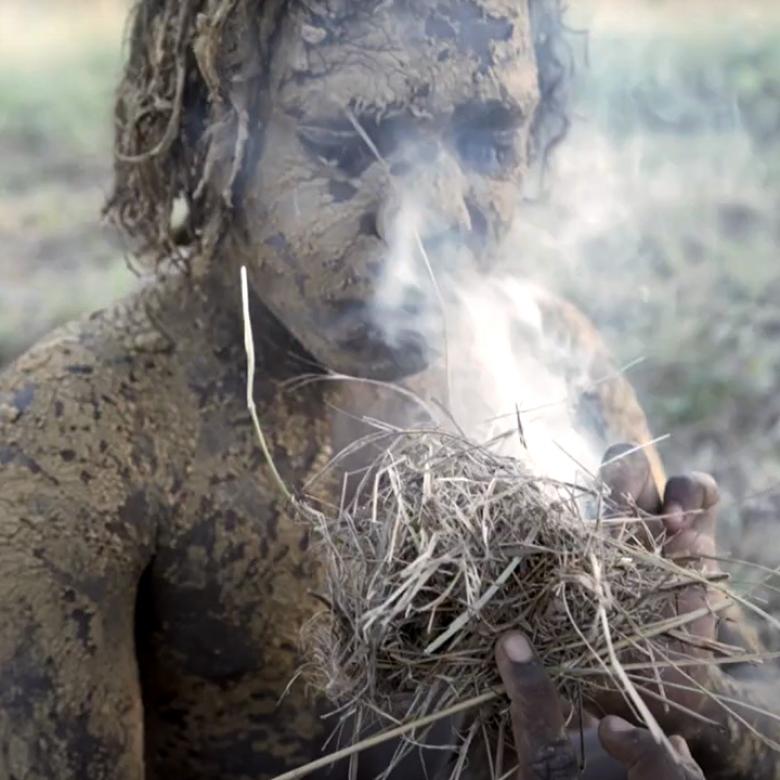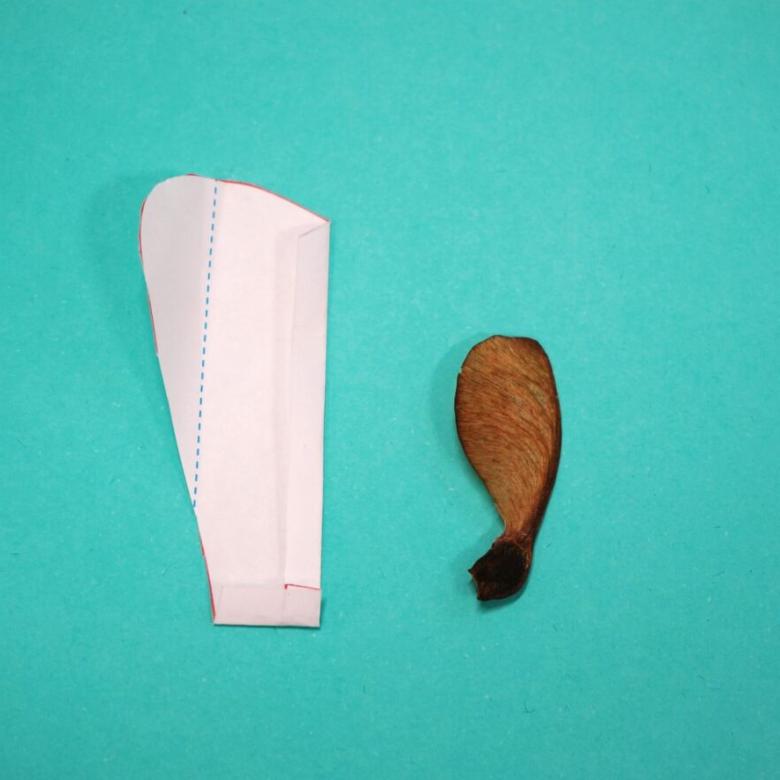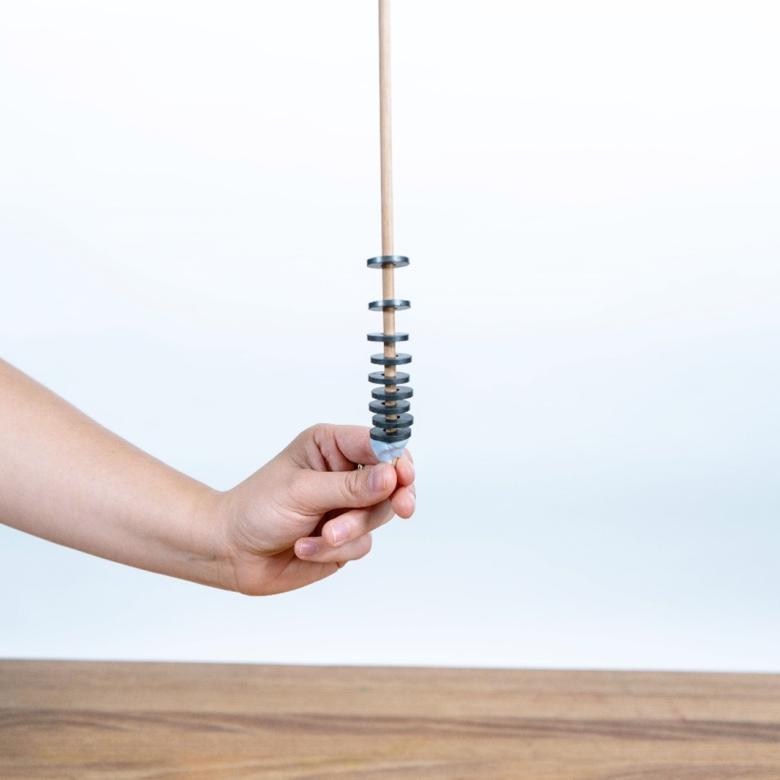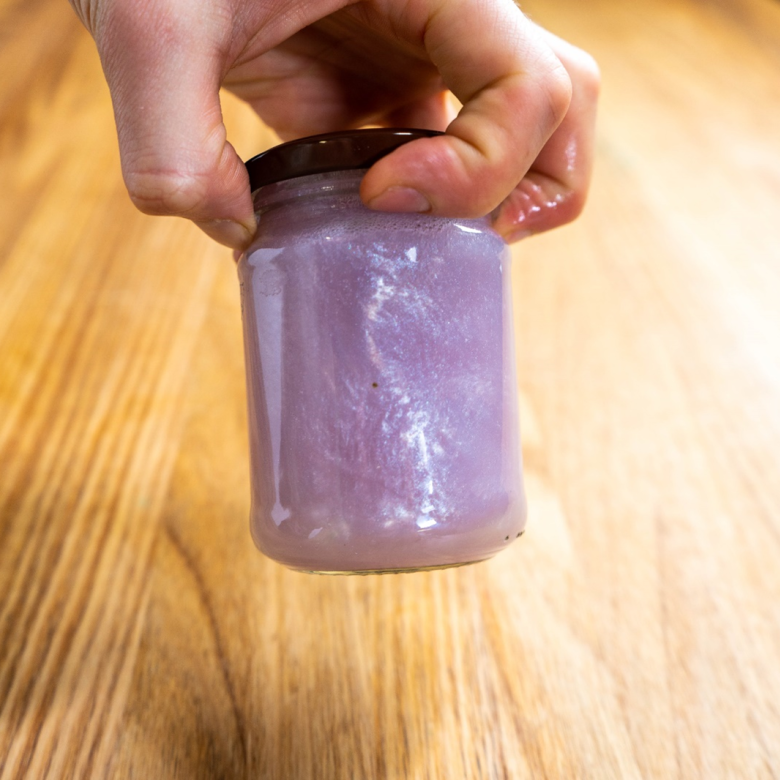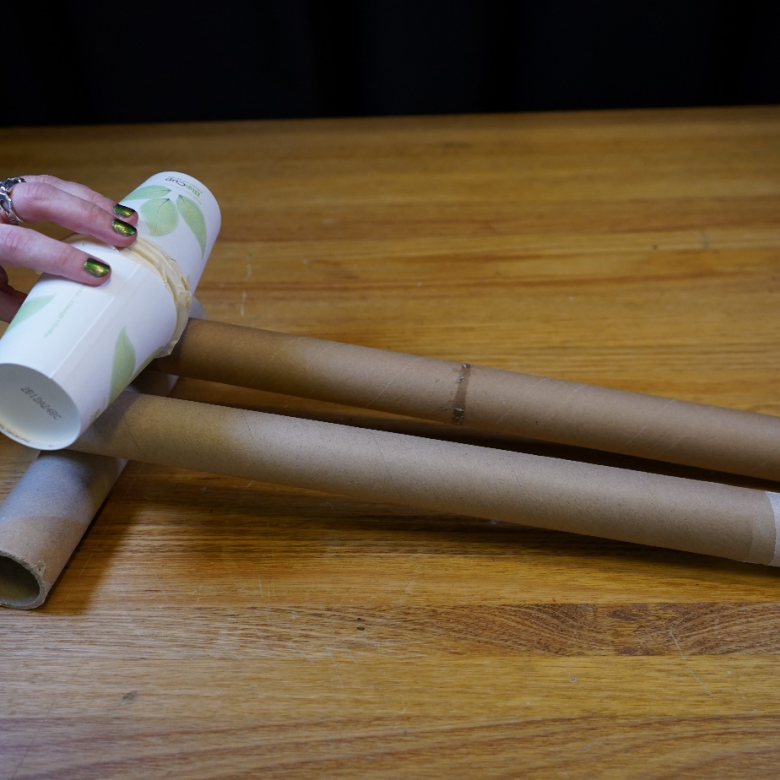You’ll need
Crepe paper, torn into small pieces
Hair dryer
A thin, A4-sized sheet of clear plastic material, such as overhead projector transparency film OR an A4 piece of heavy paper
Sticky tape
Small bowl to hold the crepe paper pieces.
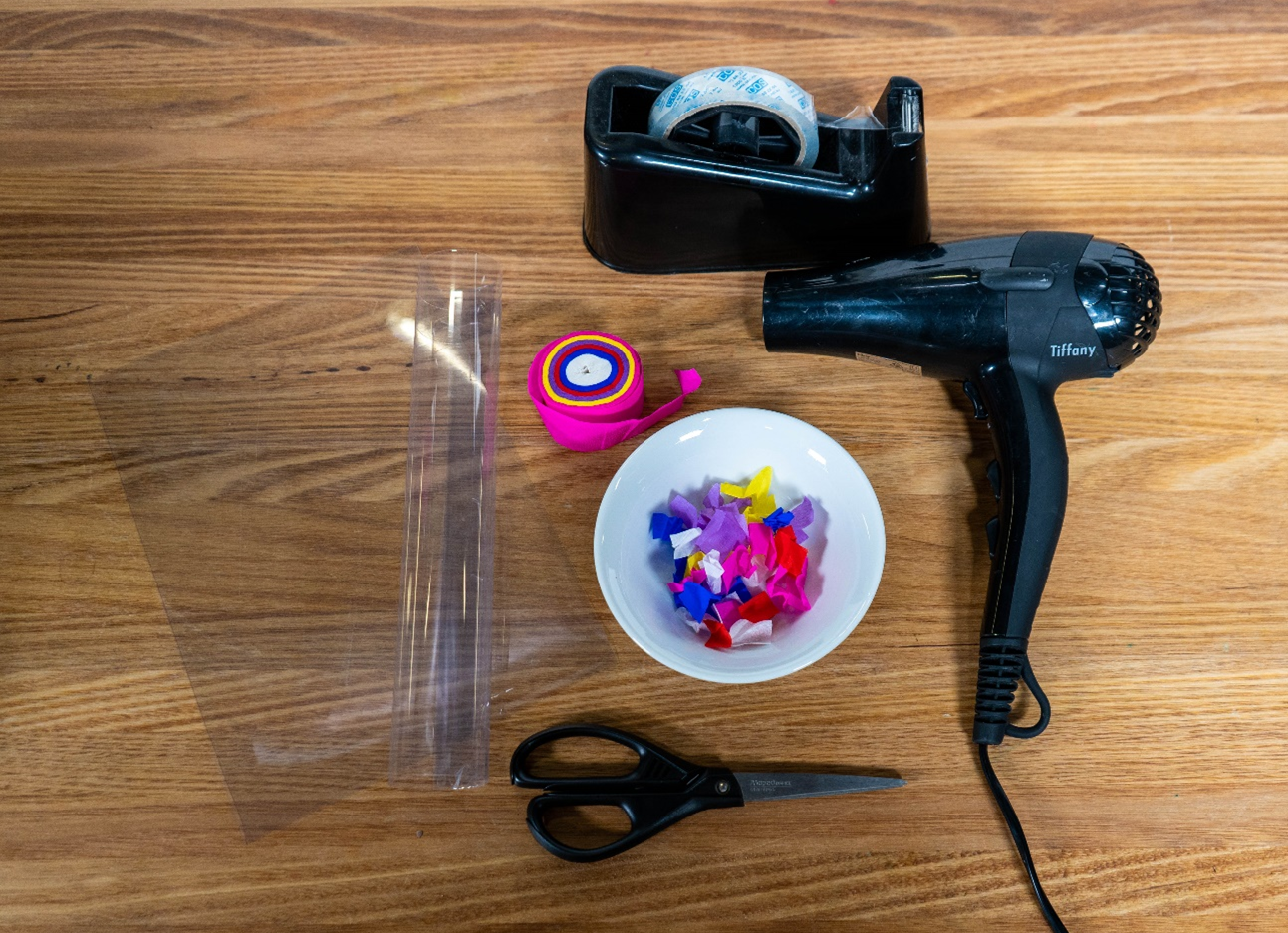
What to do
- Make a chimney by rolling the A4 transparent sheet into a long, thin tube. Use the sticky tape to stop it unrolling!
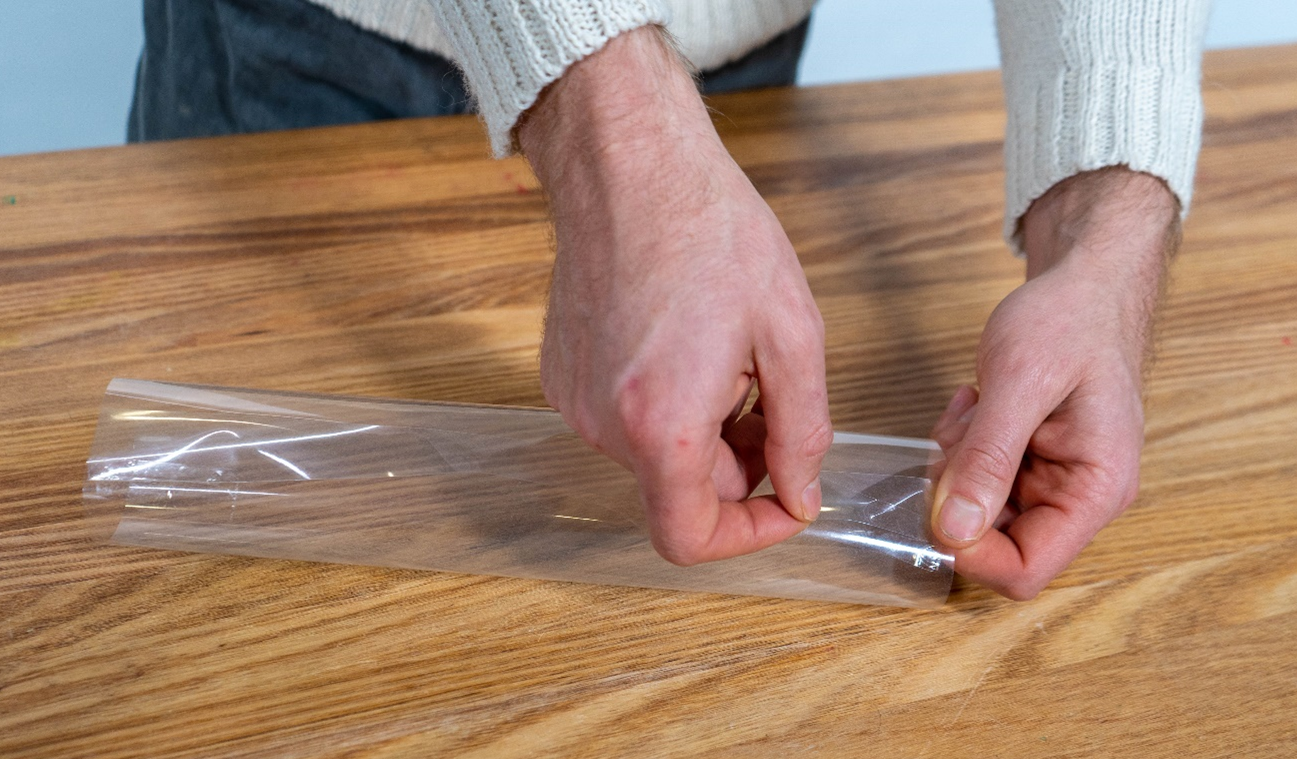
- Hold the chimney over the bowl with crepe paper.
- Turn on your hair dryer to the highest setting. Select the cool setting if you have one.
- Aim the hair dryer across the top of your chimney (not down into it!) and try to lift the confetti into the air!
Questions to ask
- Which angle do you need to hold the hair dryer for confetti to flow through the chimney?
- Try using craft feathers instead of crepe paper. Does it work as well? What about other light materials, like pompoms?
- Try the different settings on your hair dryer.
- Which is best for lifting the confetti?
- How far away can you blow the confetti?
What's happening
Blowing enough air across the top of the chimney will make confetti fly up! But how does air make the confetti move without directly blowing onto it?
The hair dryer creates a stream of low-pressure air. Air always wants to move from higher-pressure areas to lower-pressure areas. The higher-pressure air at the bottom of the chimney rushes up towards the low-pressure stream and blows the confetti along with it!
But why does air always go from high to low pressure? Air is made of tiny molecules that are constantly flying around and pushing in all directions. The more air pushes in all directions, the higher the pressure. The less it pushes in all directions, the lower the pressure. This means low-pressure regions can’t push high-pressure regions back, so the air molecules fly from the high to the low. Out in the world, we call this wind!
In the dryer’s airstream, the air molecules are mostly flying in one direction, so the pressure here is lower. The higher-pressure air at the bottom of the chimney, not being pushed back, flies up like a tiny breeze!
Did you know
Vacuums don’t really “suck”? They actually work a lot like your confetti chimney. A low-pressure area is created by fast moving air, and the higher-pressure air outside pushes dirt up into the vacuum!


